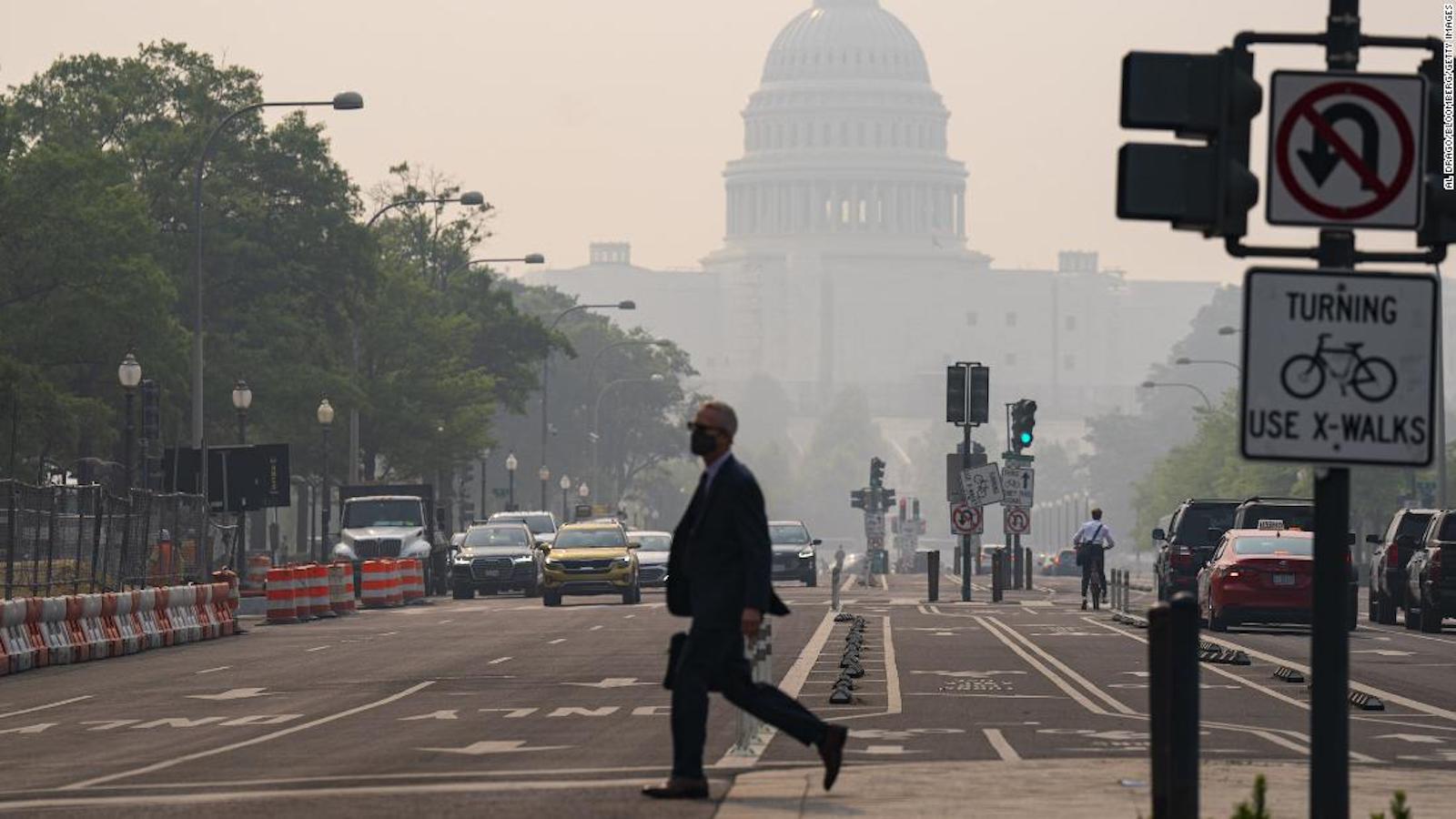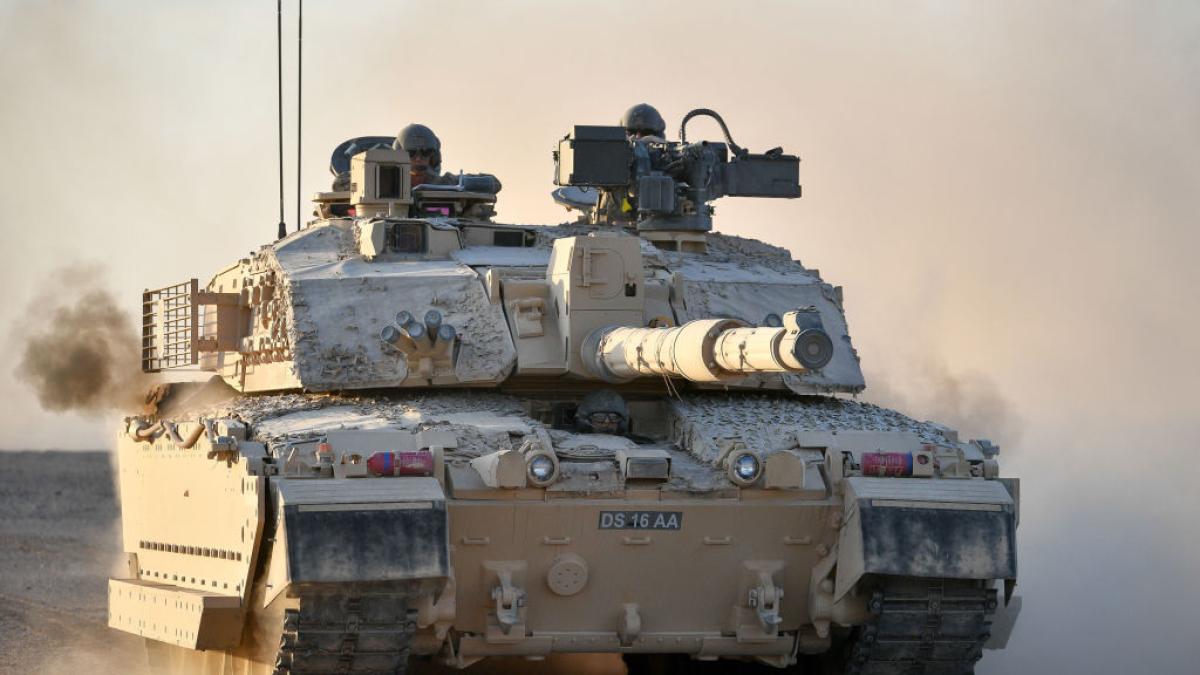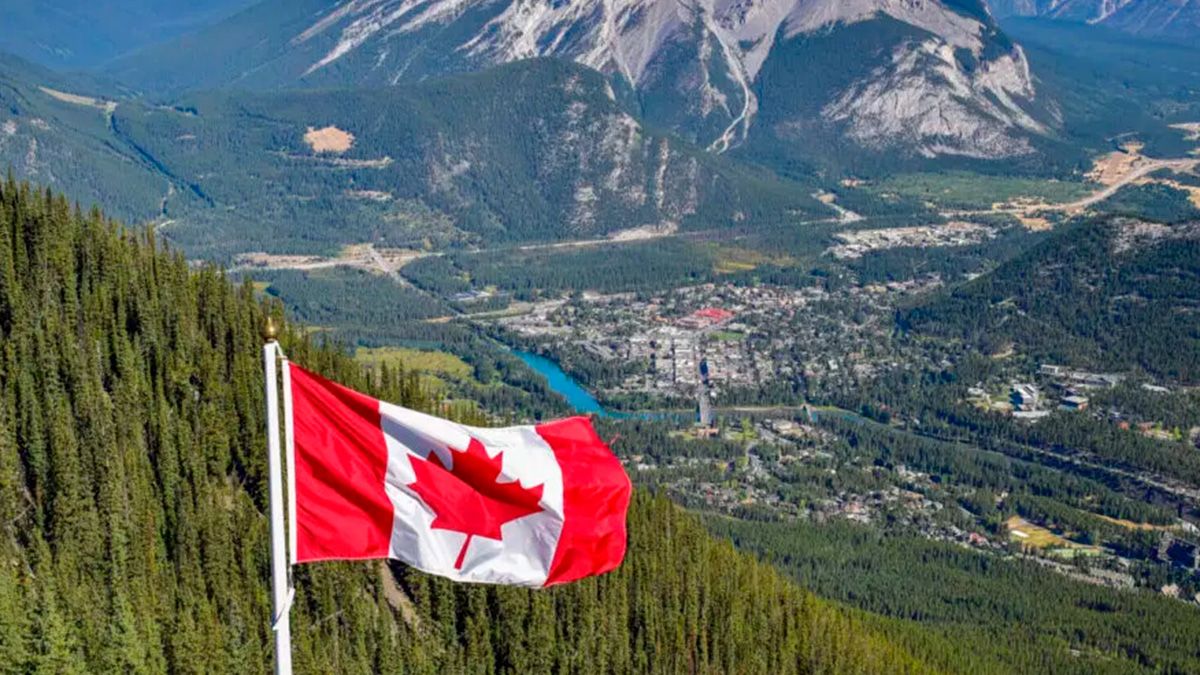(CNN) – Air quality conditions across much of the eastern United States are expected to slowly improve this weekend after noxious plumes of air from hundreds of wildfires in Canada moved south. However, schools in some metropolitan areas will operate remotely on Friday, as officials remain vigilant about exposure to contamination.
While the most severe conditions are over for most of the Northeast and Mid-Atlantic, harmful air pollutants are expected to persist in cities including New York, Philadelphia and Washington, D.C., through Friday before slowly cleaning up areas over the next several days.
Smoke from the Canadian wildfires continues to move south by winds toward the United States, resulting in moderate to unhealthy air quality in parts of the Northeast, Mid-Atlantic, Ohio Valley, and Midwest on Friday. The National Weather Service said some improvements are expected this weekend.
Thick clouds of smoke led to professional sports games being postponed and flights canceled due to poor visibility; They have closed zoos and beaches and forced many to wear masks when outdoors. Climate experts have warned that such events are becoming more frequent due to human-induced climate change.
About 50 million people in several Midwestern states and the East Coast have been under air quality alerts, but that number may change on Friday as conditions improve for some.
Here’s what you can expect this Friday:
- Entire states’ air quality is at risk: Pennsylvania, Delaware, Connecticut, Rhode Island, New Jersey and Indiana are all subject to air quality alerts. Portions of Ohio, Michigan, Maryland, Virginia and North Carolina also continue to experience those alerts.
- Canada improvements: Mayor Mike Savage said most Halifax residents who were evacuated from the bushfires will be able to return home on Friday. About 16,000 people fled their homes during the peak of evacuations due to bushfires and about 4,100 people remain evacuees.
- Distant classes: The potentially dangerous conditions prompted officials in New York City, the nation’s largest school system, and Philadelphia to implement distance learning on Friday to help reduce exposure to air toxins.
- New York City: After experiencing the worst air quality in the world at various points this week, Mayor Eric Adams said Thursday morning, the Big Apple could see a “huge improvement” on Friday. “At this time, the smoke patterns do not indicate another large plume of smoke rising over the city,” Adams said, urging people to wear good masks when outdoors.
- Firefighting assistance: Governor Kathy Hochul announced Thursday that New York State plans to send rangers to help fight wildfires in Quebec. Hochul added that at least seven people will travel to Canada over the next two weeks. The White House said federal resources have also been released.
Wildfire smoke from more than 400 fires in Quebec stopped flowing south after several days of movement, eventually reaching parts of the Atlantic coast and smothering them in an orange haze. In Quebec, smoke from wildfires across the region has decreased significantly.
As of early Friday morning, the air quality index for New York City was below 150, a rating considered “unhealthy for sensitive groups,” or level 3 out of 6, according to monitoring website AirNow.
Philadelphia’s air quality index topped 150 early Friday, making it “unhealthy.” The city’s air is expected to improve slightly to “unhealthy for sensitive groups” later on Friday.
However, it should be noted that improvements are coming slowly with only light winds and a slight change in the current weather pattern, which will keep the smoke trapped near the ground until it slowly dissipates.
As of 2 a.m. Miami time on Friday, many metropolitan areas were still having “unhealthy” air quality levels, including Dover, Delaware; Richmond, Virginia; Atlantic City, NJ; and Raleigh, North Carolina.
But officials warn that such disruptive weather events are likely to continue to disrupt daily life as the planet warms, setting the stage for more intense and frequent wildfires. When those flames burn, the smoke can travel thousands of miles, endangering millions more.
Image copyright Al Drago/Bloomberg/Getty Images Image caption This image shows the US Capitol building in Washington, shrouded in wildfire smoke from Canada on June 8, 2023 (Source: Al Drago/Bloomberg/Getty Images)
Health risks of smoking
Smoke from wildfires is particularly dangerous because it contains small particulate matter, or PM2.5, which are the smallest of pollutants. When inhaled, it can penetrate deep into the lung tissue and enter the bloodstream. It comes from sources including burning fossil fuels, dust storms, and wildfires, and this smoke has been linked to various health complications, including asthma, heart disease, and other respiratory ailments.
Because of these potential risks, US President Joe Biden said Thursday that it is “very important” that communities struggling with air pollution pay attention to local guidance and check on their neighbors.
Dr. Peter DiCarlo, an associate professor in the Department of Environmental Health and Engineering at Johns Hopkins University, urged people to closely monitor air quality in their vicinity and limit time outdoors.
“For this week, this is just a situation where we have a few days with really bad air quality. (…) It’s the beginning of summer for a lot of us parents, and maybe we can use it as an opportunity not to run so much until the poor air quality is over,” DiCarlo said.
— CNN’s Robert Shackelford, Laura Lee, Carol Alvarado, Christina Cegulia, Sarah Smart, and Jane Christensen contributed to this report.





